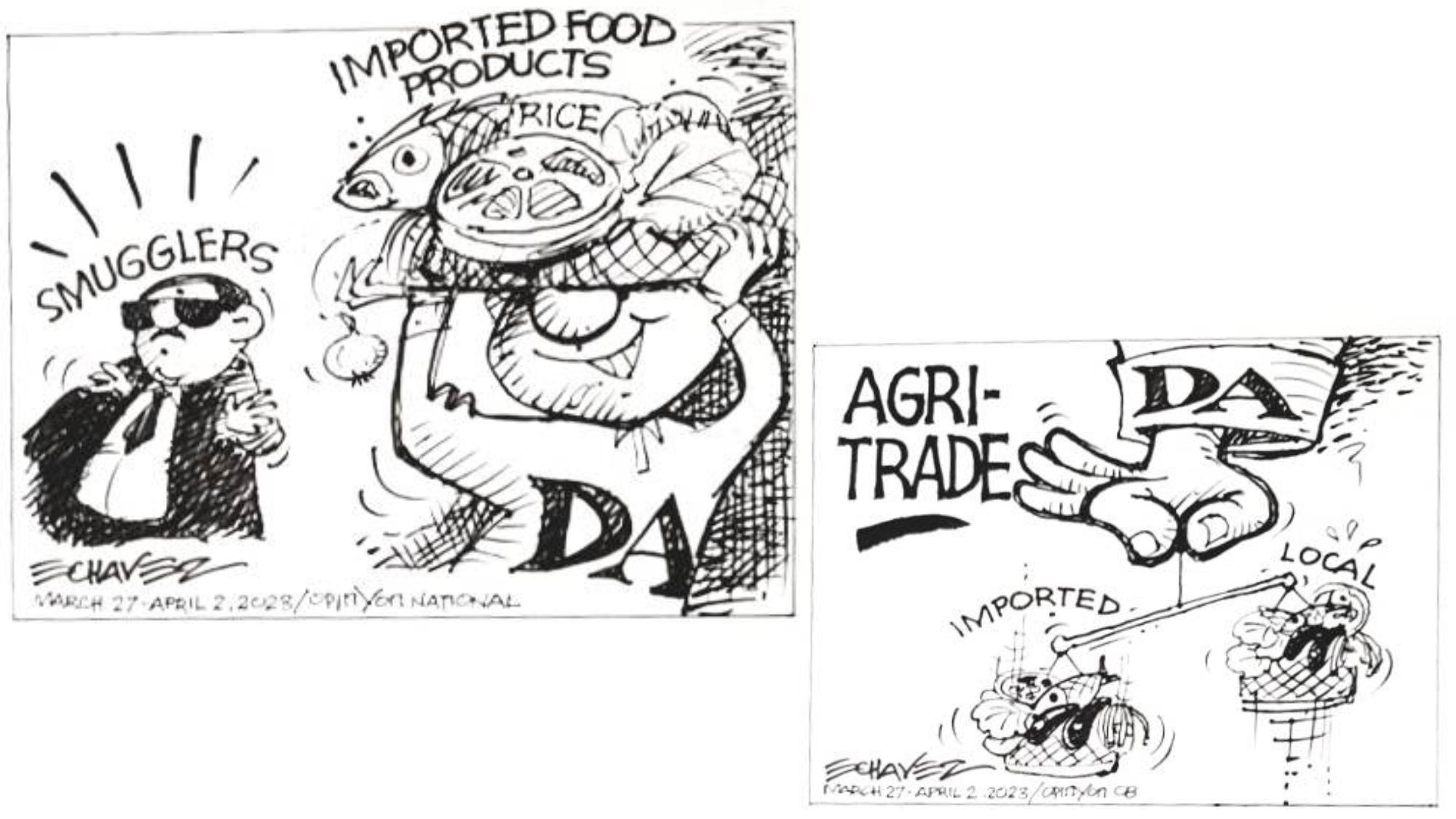At the rate we have been importing most, if not all, our food products, erstwhile grown by our local farmers which they still do till these days, we should not expect any balance of trade of agricultural products in our lifetime.
Why, because our government—from President Gloria Macapagal Arroyo (the principal promoter of World Trade Organization in the Senate) until Marcos Jr.—had converted the Department of Agriculture from a production-oriented institution to an importer and trading/warehouse of imported food products from rice, corn, wheat, salt, pork, beef, eggs, vegetables of all types and onions and garlics—with the prices of the latter two items soaring to the sky and beyond the reach of the poorest of the poor and the upper middle class. Their prices have not dropped much—even with the surge of those importations AND SMUGGLING—in addition to local harvests which have started for most farm products.
Reuters on March 20 reported that the trade deficit of agricultural goods expanded 36.6 percent year on year in the fourth quarter to $3.22 billion, based on preliminary data of the Philippine Statistics Authority (PSA).
In a report, the PSA said that the overall trade in agriculture — or the sum of exports and imports — increased 5.1% to $6.32 billion during the quarter, slowing from the 17.6% growth posted a year earlier.
Agricultural imports grew 14.9 percent to $4.77 billion in the fourth quarter, up from 13.9 percent a year earlier. This accounted for 14.9 percent of all imports during the quarter.
Among the commodity groups, cereals accounted for $924.56 or 19.4 percent of agricultural imports. This was followed by residues and waste from the food industries and prepared animal fodder with $606.40 million; and meat and edible meat offal $510.67.
During the quarter, agricultural imports from the Association of Southeast Asian Nations (ASEAN) accounted for 17% or $1.57 billion of overall farm imports. With our accession to the RCEP, expect the imports from ASEAN to balloon even more.
Indonesia was the main source of agricultural imports in the region with $481.52 million.
Animal or vegetable fats and oils and their cleavage products worth $392.76 million were the top imported agricultural goods from ASEAN.
Exports of agricultural goods fell 15 percent year on year during the quarter to $1.55 billion.
Agricultural exports to ASEAN amounted to $179.99 million or 6 percent of all farm trade. Malaysia was the main buyer of Philippine agricultural exports in the region at $65.21 million.
Another thing with the order of President Marcos to sell the confiscated smuggled sugar to Kadiwa stores, he is virtually abetting the illegal smuggling operations by giving them a ready market for their loot (since they don’t pay taxes and duties on such smuggled items).
